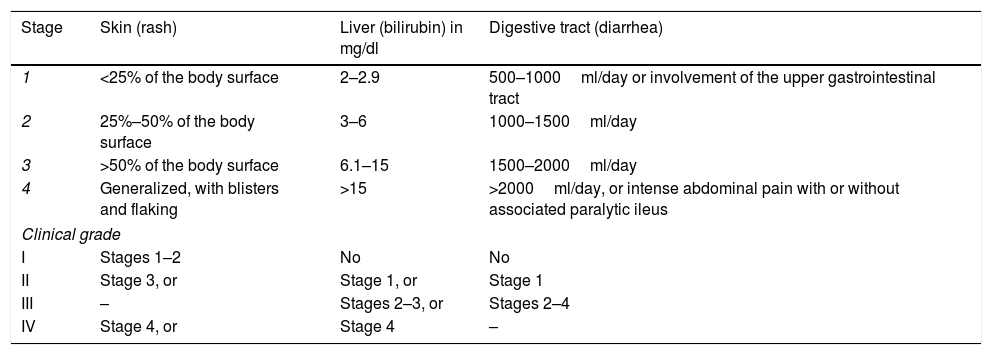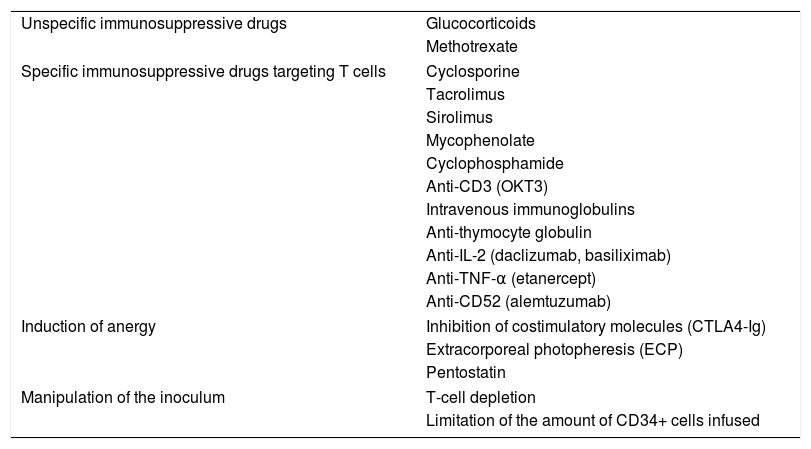Graft-versus-host disease (GVHD) is the most frequent and potentially fatal complication of an allogeneic hematopoietic progenitor cell transplantation. It appears when immunocompetent T cells from donor origin recognize antigens from recipient origin as foreign. The immune response activates donor T cells and destroys recipient tissues. The clinical picture of this immune response is called acute and chronic GVHD. Acute GVHD is the main fatal complication during the first months after allogeneic hematopoietic progenitor cell transplantation, while chronic GVHD accounts for a significant long-term fraction of the mortality, morbidity and reduced quality of life of patients. Our goal is to review the frequency, clinical manifestations, diagnosis, treatment and prevention of GVHD.
La enfermedad del injerto contra el receptor (EICR) es la complicación más frecuente y potencialmente fatal cuando se realiza un trasplante alogénico de progenitores hematopoyéticos (alo-TPH). Ocurre cuando linfocitos T inmunocompetentes y procedentes del donante (injerto) reconocen estructuras antigénicas del receptor como extrañas. La respuesta inmune resultante activa los linfocitos T del donante y destruye los tejidos del receptor. Las manifestaciones clínicas de esta respuesta inmune dan como resultado la EICR aguda y crónica. La EICR aguda es la principal complicación fatal en la fase precoz del trasplante alogénico de progenitores hematopoyéticos, mientras que la EICR crónica supone una alta morbilidad y mala calidad de vida de los pacientes que sobreviven a largo plazo. En el presente artículo, realizamos una revisión de la EICR desde la frecuencia de aparición, así como las manifestaciones clínicas, diagnóstico, tratamiento y prevención.










